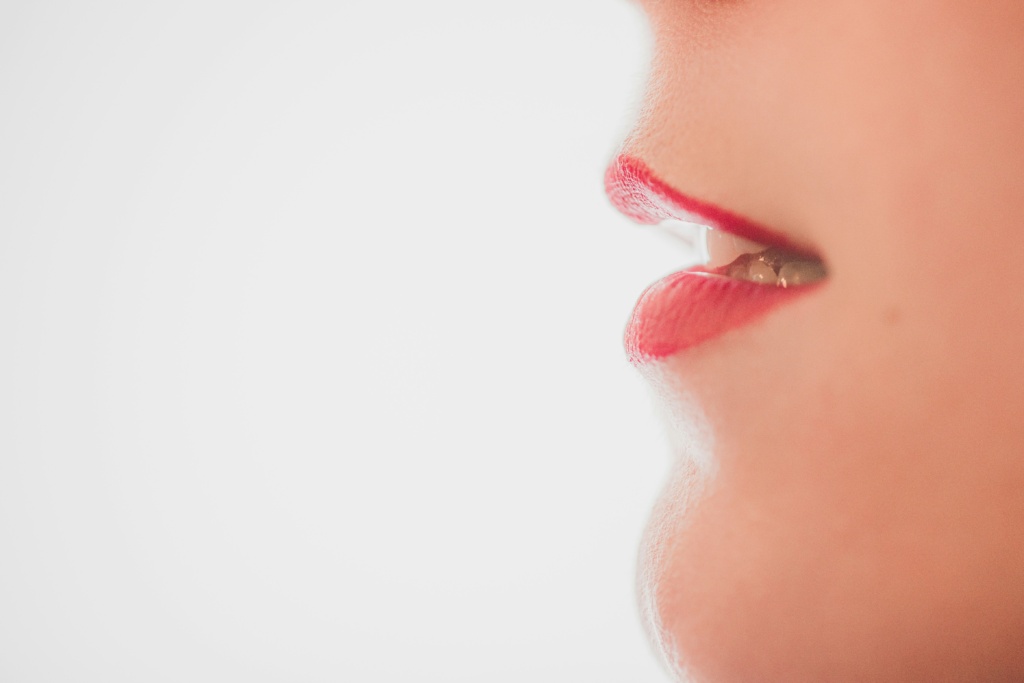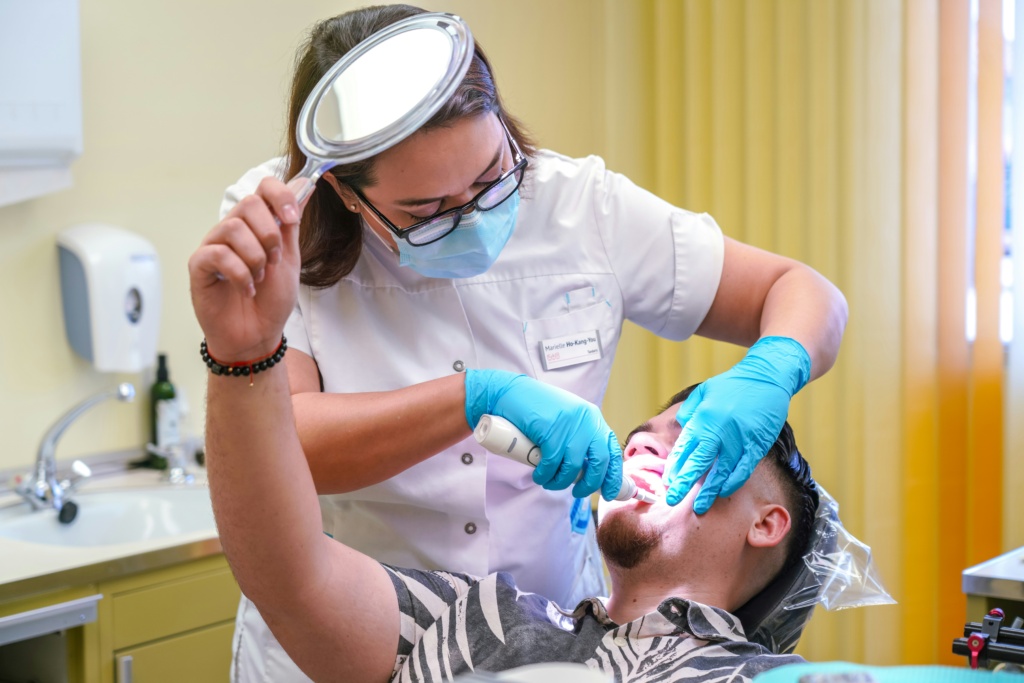Mouth Breathing: A Link to Cavities and Oral Health Issues

Mouth breathing is often dismissed as a simple habit, especially in children. However, it can actually indicate deeper underlying issues that, if left unaddressed, may significantly impact oral health. This includes an increased risk of cavities, gum disease, facial development concerns, and other health issues beyond oral health. Let’s explore how mouth breathing can affect your oral health and discuss remedies to address the root causes.
Let’s explore how mouth breathing can affect your oral health and discuss remedies to help address the root causes.
The Link Between Mouth Breathing and Cavities
While cavities are a common concern for many adults and children, mouth breathing can create the perfect environment for tooth decay to flourish. Normally, our saliva plays a crucial role in protecting our teeth. It neutralizes acids produced by bacteria, washes away food particles, and actually helps repair early tooth decay. But when we breathe through our mouths, saliva production is reduced, which leads to a dry mouth.
This dry mouth isn’t just uncomfortable—it makes your teeth more vulnerable to cavities. Without the natural protection that saliva offers, the acids in the mouth (from ammonia permeability) can more easily attack the enamel, leading to tooth decay. This is especially concerning for children whose teeth and oral structures are still developing. In fact, cavities caused by mouth breathing are preventable if we recognize the signs early and take steps to remedy the root cause.
While cavities are a significant concern, mouth breathing can have a much broader impact on oral health and development. It’s important to understand that mouth breathing is a symptom and not an underlying cause itself.

Here’s a deeper look into how it can affect our smile:
Gingivitis and Gum Disease
When the mouth is dry, it becomes harder for saliva to wash away food particles and bacteria. This could allow plaque to build up, which can lead to gingivitis, an early stage of gum disease characterized by swollen, red gums that may bleed easily. If left untreated, gingivitis has the possibility of progressing into more severe gum disease, affecting the overall health of your teeth and gums.
Facial and Oral Development
Mouth breathing doesn’t just impact the health of your teeth and gums—it can also influence facial development, particularly in growing children. The positioning of the tongue is essential for proper facial growth, and mouth breathing can alter this position over time. This can result in misalignment of the teeth, orthodontic issues, and even changes in the shape of the face itself. For example, someone who is mouth breathing could notice a lack of a defined jawline and chin.
Dry Mouth and Its Consequences
A dry mouth caused by mouth breathing is one of the most immediate oral health concerns. Without enough saliva, the natural cleaning process is disrupted, leading to a higher buildup of bacteria and demineralization of teeth. This dry environment also makes it easier for bacteria to multiply, further increasing the risk of cavities.

Underlying Factors That Can Cause Mouth Breathing
Understanding the underlying causes of mouth breathing is the first step in addressing its effects. Here are some of the most common culprits:
Blocked Nasal Passages
Conditions like enlarged tonsils, adenoids, allergies, or chronic sinus issues can block the nasal passages, forcing individuals to breathe through their mouths for better airflow. Adopting a strong antibacterial protocol can be extremely helpful to move forward.
Structural Issues
In children, structural factors such as a narrow jaw or misaligned teeth can make nasal breathing more difficult. These anatomical concerns may require orthodontic intervention or other holistic and biological treatment options to encourage proper breathing and development.
Moving Forward & Finding Solutions
Fortunately, there are ways to address mouth breathing and its impact on oral health. Here are some remedies that can help promote nasal breathing and restore oral balance.

Nasal Irrigators
Tools like a Neti Pot, Sinugator, and Squeeze Nasal Irrigators can help clear nasal passages, making it easier to breathe through the nose and reducing the need for mouth breathing.
Herbal and Natural Supplements
- Sovereign Silver and Argentyn 23 are remedies known for their antimicrobial properties and can help reduce bacterial buildup in the nasal passages.
- Garlic, Oregano, Goldenseal, and Lemon Balm are herbs and foods with natural antibacterial and anti-inflammatory properties that can support overall nasal health, reduce congestion, and help lower bacterial loads within the body.
- Basic Immunity Support, such as Zinc and Vitamin C from a strong source like Vimergy, can help bolster the immune system, reducing allergies and infections that contribute to mouth breathing.
- Goldenseal is a powerful herb known for its antimicrobial properties, mainly due to the compound berberine. It is commonly used to support immune health, treat digestive issues, and combat infections, including those of the respiratory system. It can help alleviate sinus infections and respiratory congestion, promoting overall nasal health.
- Alle Relief (EclecticHerb) can help ease symptoms of sinus congestion and support overall respiratory health.
- Sinus Samurai (Herb Pharm) is an herbal formula designed to clear sinus congestion and reduce inflammation. It contains herbs like Echinacea and Goldenseal, which support immune function and help combat sinus infections and inflammation, promoting easier breathing through the nose.
- Monolaurin, derived from coconut, is an antimicrobial agent that helps reduce inflammation and supports the immune system. It is especially beneficial in combating viral, bacterial, and fungal infections, which can contribute to respiratory issues and mouth breathing.

As always, please consult with your healthcare provider, practitioner, or dentist before trying new remedies.
Mouth breathing may seem like a harmless habit, but its impact on oral health can be profound. From cavities to gum disease and even changes in facial development, the effects of mouth breathing can be far-reaching. By addressing the underlying causes and incorporating natural remedies into your daily routine, you can help protect your teeth, gums, and overall oral health.
If you or your child are struggling with mouth breathing, it’s never too late to address underlying causes. Intervention is key to ensuring a healthy, happy smile for years to come.
Inside the Transforming Oral Health Course
In my Transforming Oral Care Course, we dive into how oral health connects to overall wellness. You’ll learn about supportive nutritional strategies, holistic tools, and gain insights from expert biological dentists. This course empowers you to address and prevent issues like mouth breathing from a whole-body perspective, building a healthier foundation for you and your family.
Here are some of the additional topics we will be covering together in the course:
- Nutrition for Oral Health
- Environmental Factors impacting oral health
- Effective Practices
- Remineralization
- Cavity Insights
- Gum Recession
- Chipped and Yellow Teeth
- Crooked and Translucent Teeth
- Bad Breath Remedies
- Root Canals
- Tooth Abscesses
- Oral Health Tools: Review effective tools and treatments from dental clinics and home devices.
If you’re ready to transform your approach to oral health, sign up here!
